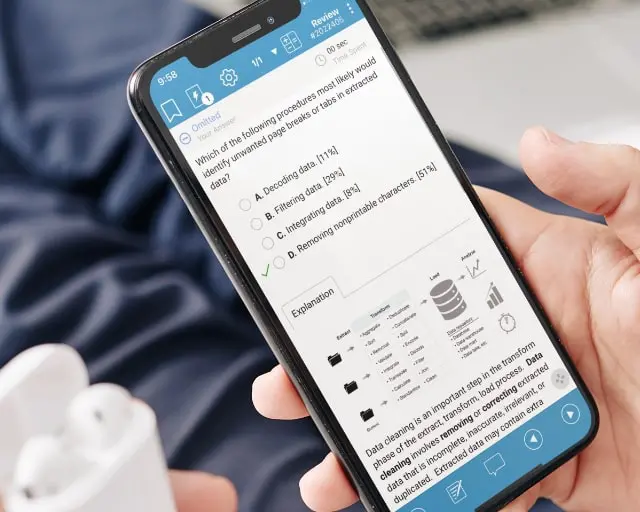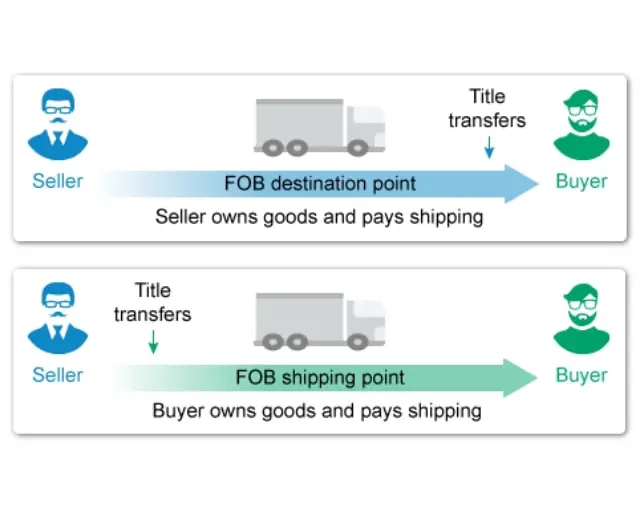Are you interested in becoming a CPA in Texas? If so, find out everything you need to know about the CPA requirements to become a license holder in the state. Below you’ll learn the CPA Exam and licensing requirements, as well as information on the cost and fees required to become a CPA in Texas.
Understanding Texas CPA Requirements
Before applying for the CPA Exam, you should familiarize yourself with the requirements. It's important to note the distinction between exam and license requirements for each state. Here's a quick overview of the Texas CPA requirements, such as social security number, citizenship, residency, and the prerequisites of passing the CPA Exam and work experience.
| Social Security Requirement | Yes |
| Citizenship, Age, and Residency Requirements |
|
| CPA Exam Requirements for Licensure | 150 hours (including B.A.) |
| Pass The Exam | Score 75 in each section within 18 months to pass. |
| Work Experience | 1 year of full-time accounting work experience |
| Ethics Exam Requirements | Pass the Texas Rules of Professional Conduct exam |
| International CPA Examination Program | Participant |
Educational Requirements
Before sitting for the exam, candidates must meet the following education requirements for the Texas CPA Exam:
- Hold a baccalaureate or higher degree from a board-recognized college or university in the United States or an equivalent degree from another country as determined by board rule.
- Earn 120 semester hours of college credit to qualify for the CPA Exam.
- Of these, 21 semester hours or quarter-hour equivalents of upper-level accounting courses from an accredited college or university. Two semester hours of accounting or tax research and analysis are also required.
- The coursework requires 24 semester hours or quarter-hour equivalents of upper-level related business courses and two semester hours of accounting or business communication.
- Candidates must have 150 semester hours or quarter-hour equivalents of college credit for CPA licensure.
- Complete a three-semester-hour ethics course approved by the Board.
Work Experience Requirements
Most states require one or two years of experience in public accounting to obtain the license. You must have at least one year of non-routine accounting work experience in Texas. This includes services like audits, reviews, compilations, and engagements, all conforming to professional standards. If you’re in college, your school can assist you in finding relevant work experience in one of the following fields:
- Client orientation in public accounting
- Industry
- Government
- Law Firm
- Education
Also, having diverse and non-routine accounting expertise is highly beneficial for taking the CPA Exam in Texas. The areas listed below are preferred for CPA work experience:
- Accounting
- Attest
- Management
- Financial counseling
- Consulting
- Tax
CPA Ethical Exam Requirements
Before licensure, TSBPA requires CPA applicants to complete an ethics course or exam. As you pursue the CPA credential, check with the official TSBPA website.

Texas CPA Exam & Licensing - Cost and Fees
Candidates applying for the CPA Exam in Texas must submit an application of intent followed by the eligibility application fee, each requiring a nonrefundable fee of $20 and $15, respectively. The tentative fee for each exam section is $254.80. Please note that the exam section fees are subject to change.
| Texas CPA Exam Fees | |
|---|---|
| Application of Intent | $20 |
| Eligibility Application Fee | $15 |
| Exam Section Fees | $1,019.20 |
| Total: | $1,054.20 |
*Pass the three core sections - AUD, FAR, and REG, and one discipline section - BAR/ISC/TCP
The state board decides on various applications, services, and annual renewal fees. The below table is given for reference purposes only. Your exact fee may differ based on the timing of your initial payments and the present status of your application with the Texas Board.
| Fees for Active License Holders | Fees |
|---|---|
| Individual annual license (Includes $10 scholarship fees) | $97.00 |
| Individual annual license (Retired or disabled status) | $15.00 |
| Firm annual license | $60.00/office |
| Transfer of earned exam credit from Texas | $40.00 |
| Replacement certification | $50.00 |
| Certification by an out-of-state CPA to Texas by reciprocity | $100.00 |
License Renewal Requirements
- The annual CPA license renewal date is the last day of your birth month.
- Completing the 120 hours of Continuing Professional Education (CPE) or Continuing Education (CE) is mandatory.
- Use the TSBPA's online portal to submit renewal applications.
- Submit the license renewal application and pay the license renewal fees.
- The state board will process renewals upon meeting the prerequisites.
- Once the payment for license renewal is processed, licensees will also receive a new pocket ID card with the new license expiration date.
- There is a six-week grace period before the submission deadline for renewals.
- You must submit a reinstatement application and pay additional penalties if your license expires.
- If you’re moving to Texas from another state (where you are licensed), you must submit an Affidavit for Reinstatement of Individual License form. It must be done within 90 days of your move to get your license transferred.
- Sometimes, you may have to take the Texas Rules of Professional Conduct exam to transfer your license.
Continuing Education Requirements
Texas CPAs must complete 120 hours of CPE for the first three years after becoming licensed. Of these, you must complete at least 20 hours of CPE annually. TSBPA must approve the continuing education provided by a CE sponsor. You must retain five years of CE requirements for verification purposes.
Writing articles or books, giving conference presentations, or teaching advanced courses can count as continuing education credits. CPAs certified for less than a year are exempt from CPE requirements until the second year of their certification period.
Texas CPA Exam: Exam Dates, Score Release, and Scheduling
As you begin your CPA journey after meeting the exam requirements, there are a few things you need to know - such as target exam and score release dates, along with the procedure to schedule your Texas CPA Exam. Here's a concise overview of the things to keep in mind.
Exam Dates and Score Release
Texas CPA candidates can apply for the exam based on their preferences in the available slots. Candidates must check the target CPA Exam and score release dates before scheduling their exam. It's worth noting that continuous testing has been temporarily discontinued to account for standard-setting analyses and activities.
Scheduling the CPA Examination
Each state has a slightly different application process. Here's a quick guide to apply for and schedule the CPA Exam in Texas.
All candidates must submit an Application of Intent to the TX Board of Accountancy, available on the state board’s website, with a non-refundable fee of $20 and a $15 eligibility application fee.
As a participant in the International CPA Examination Program, international candidates or those who’ve completed their education outside the United States can apply for the Texas CPA Exam.
Once TSBPA approves your application, you will receive an ATT document over the mail with instructions to register for the CPA Exam. From then on, you must pay the CPA Exam section fee via a NASBA payment coupon. You have 90 days to select the sections and make the payment.
After paying the CPA Exam section fee, you will receive an individual Notice to Schedule (NTS) for each section within four business days. Use it to schedule your exam date via the Prometric and carry it on the exam day to enter the testing center.
Sign up on the Prometric website using your NTS, and check for available dates based on your preferred center and date. If you need to learn about the nearest Prometric center, check them on the portal.
Passing three core sections and a discipline with a minimum score of 75 is required to pass the CPA Exam. After you complete your exam, scores will be accessible via the state board’s portal.

Read More Related Articles
CPA Exam Requirements
Planning to sit for the CPA Exam? Here’s everything you need to know about CPA Exam requirements.
CPA Exam Scheduling and Registration
Wondering how to schedule the CPA Exam? Learn more about the scheduling and registration process.
CPA Exam Pass Rates
Do you know what the national average CPA Exam pass rates are? Find out now.
How is the CPA Exam Scored?
Curious about the CPA Exam scoring method? Read how the CPA Exam is scored.
